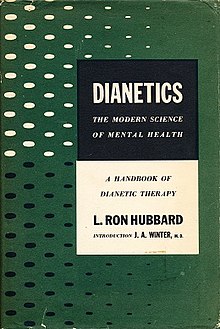4 Easy Facts About Dianetics Shown
4 Easy Facts About Dianetics Shown
Blog Article
Dianetics - Questions
Table of ContentsNot known Facts About DianeticsAll About DianeticsAll about DianeticsThe Dianetics Ideas
I couldn't ever not intend to get anything that comes to mind for you- if it was otherwise, I wouldn't be sitting below with you, doing this. I not just might never ever have a trouble, or otherwise desire to hear something that enters your mind for you, yet I'm totally anxious to understand every idea, every idea, every photo or sensation that arises or materializes for you- do not ever think otherwise, and if for one reason or another you do, please just allow me recognize! Often, you may have an idea, and photo, idea or occurrence pop up that does not seem to respond to the concern, or connect to it, yet nevertheless, constantly do tell me concerning it, and as we proceed, the importance will arise for you.This is inherent in the basis of processing, and the subject of this conversation: the basic roles of the therapist and the customer: The fundamental function of the counselor is, contrary to "conventional training", not to manage, which implies to impose and/or inhibit, yet to instead function from the basis of EMPOWERING THE CUSTOMER.

Little Known Facts About Dianetics.
John Mcmasters expressed this standard reality incredibly well in among his talks on Power handling, in which he discusses just how he was asked what this "unique knack" was that he had for providing such wonderful sessions; he needed to think regarding that for a minute, and identified that it was what he had not been doing, along with what he was doing: he had not been examining, evaluating, computer, or in fact, creating any type of ideas, allow alone spoken expressions, after offering the command and while waiting on the PC to complete their answer to their satisfaction; he was, merely and just, existing with the PC, and totally interested.
The function of the therapist, demonstrated; that was his "unique flair". I have had my own experience which educated me this well, very early in the game. In 1982, having actually just recently finished my training and teaching fellowship on New Period Dianetics, I was running this on a PC, and there was a factor in the session where (being a bit wet behind the ears not yet having numerous hours under my belt as a professional auditor) the computer appeared to be "taking as well long" to express anything verbally after I provided him a command.
This secret turned out to be one of the most useful contribution that John ever made to the topic of treatment or bookkeeping (Dianetics). In my simple opinion, it is the greatest contribution that any person has ever made to these subjectsthe application is completely non-judgemental, non-evaluative, and empty of any suggestion, suggestions or opinion.no preconditioned program for people, or 'levels' that they should do
In Scientology we prided ourselves on not evaluating for individuals. All that actually suggested was that the auditor did not Click This Link VERBALLY examine for the PC in session.
8 Simple Techniques For Dianetics

Any person that had actually ever seen John audit can not aid however see a special high quality in his bookkeeping."The customer's standard duty is to be there with the objective of moving in the instructions of their spiritual goals, and to openly and totally express and use this link experience whatever materializes for them in responding to the inquiries and carrying out the guidelines in the handling.
This is something to process as needed. Yet likewise, people often have prior experience and/or indoctrination in auditing/processing which, in some ways, and to some degrees, actually misleads them right into perspectives, ideas and habits patterns that stop the complete realization of these duties, therefore they will certainly have a tendency to inhibit the expressing of what comes to mind, as in the instances offered over. * The initial, and perhaps leading examples of mis-indoctrination resulting in less than entirely smooth and reliable sessions, can be located in specific elements of the training routines, or "TR's":"TR's" are commonly an individual's first, or at the very least early, experience in Scientology, and while I will certainly take place to explain what I see as the defects in idea and method, nonetheless, tend to be considerably therapeutic, done as they are given (Hubbard urges that "TR's are not refining, they are training", yet factually, they are click for more both handling AND training)
Alan Walter made comparable monitorings, and improved these with his "Presence Processes". There is no "flunking", and no rejection of the fact of this being processing. The focus, as it must be, gets on experiencing the various other individual's visibility. All the manifestations which obtain a "fail" in doing "TR-0" are just the being's initiatives to resist the other person's existence, and instead than being bugged and badgered with "Flunk", which imposes "failure!" on the being, one just requires to be encouraged to "stick their feet in the water a little much deeper", to increasingly refurbish their ability and willingness to totally share and experience "being right here", or "visibility", with others.
The Of Dianetics

Report this page